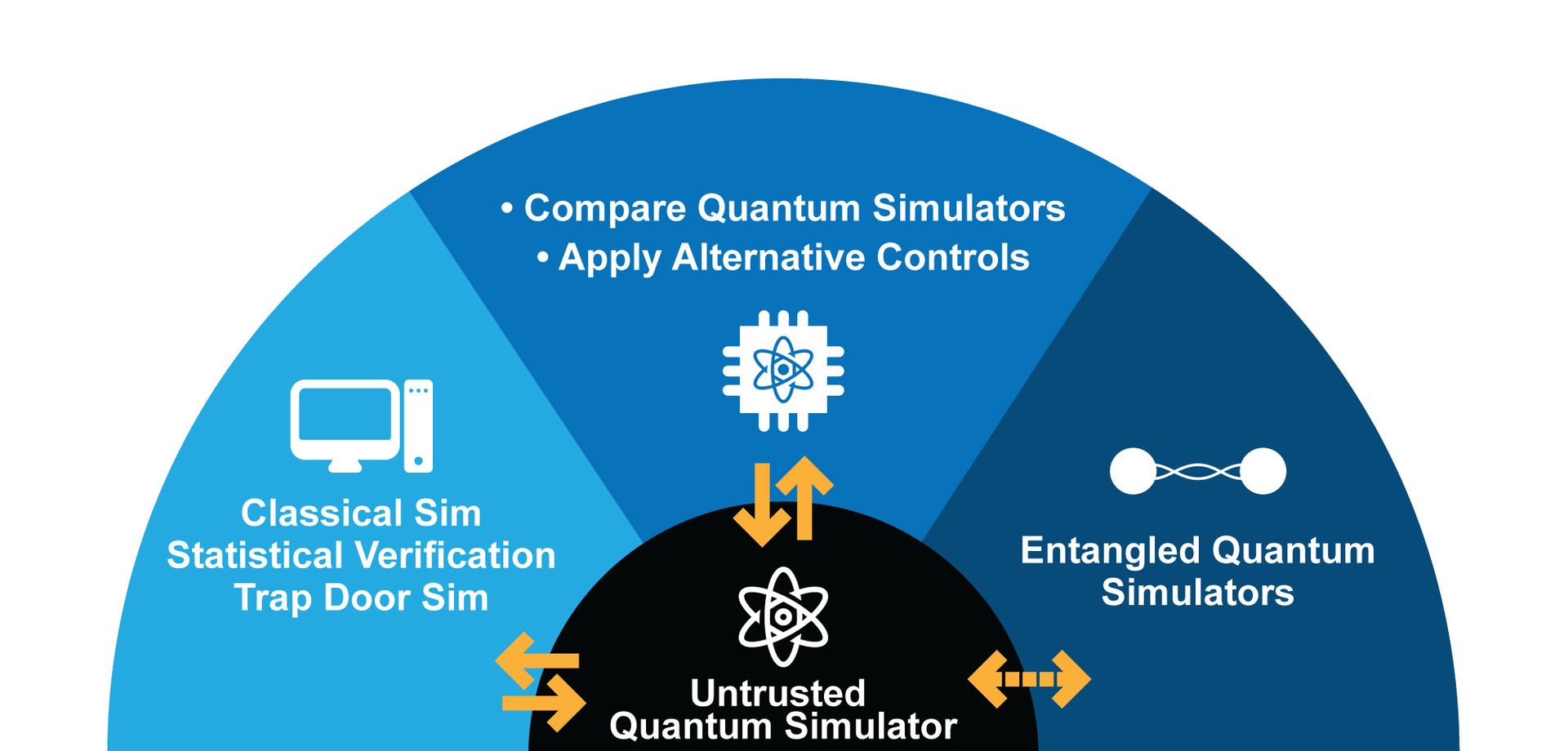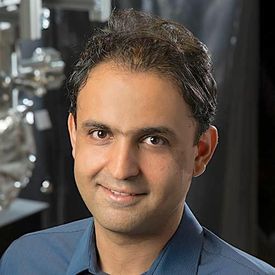RC1: Verified Quantum Simulations

The quest to turn quantum systems into quantum simulators faces a chicken-and-egg problem. If quantum simulation far outstrips classical (i.e., non-quantum) computational approaches to certain problems, how can we be sure that the output of a quantum simulator is correct? That is, how can we trust the results of a quantum simulation without an existing, trustworthy quantum simulator?
For certain kinds of problems, it is easy to verify that a solution is correct. But in the case of quantum simulation, there is no simple way to check your work. Overcoming this difficulty requires the development of new tools for characterizing the performance of a quantum device and new methods for comparing that performance to a reference—be it another quantum simulator or, in certain circumstances, a conventional classical simulation.
Using a second quantum simulator to check the work of the first might sound like doubling down on the problem, but if two devices give the same results, it can increase the likelihood that they are performing correctly. RQS researchers are exploring the limitations of this approach to see whether two quantum simulators can be more trustworthy together than alone.
Likewise, the advantage of quantum simulation is to solve problems that are intractable for classical devices, so it might seem strange to compare results from a quantum simulator to results from a classical simulator. But here, too, there is a clever twist. Some problems are ordinarily easy and only become intractable in certain regimes, like when parameters are tuned way up or way down. If a quantum simulator works for an easy version of a problem (which can be verified by checking with a classical simulator), it boosts the likelihood that the same simulator could be trusted in more challenging regimes. RQS researchers are exploring the extent to which classical devices can be used like this to bootstrap the trustworthiness of a quantum simulator.
RC1 Co-Leads
Co-PI, Co-Associate Director of Research, RC1 Co-Lead
RC1 Co-Lead
Featured Publications
Digital Quantum Simulation of the Schwinger Model and Symmetry Protection with Trapped Ions
, , PRX Quantum, 3, (2022)Efficiently Verifiable Quantum Advantage on Near-Term Analog Quantum Simulators
, , PRX Quantum, 6, (2025)PRXQuantum.6.010341.pdfCross-platform comparison of arbitrary quantum states
, , Nature Communications, 13, (2022)s41467-022-34279-5-combined.pdfRandom Pulse Sequences for Qubit Noise Spectroscopy
, , Phys. Rev. Applied, (2025)2303.00909v1.pdfExploiting Quantum Assertions for Error Mitigation and Quantum Program Debugging
, , 2022 IEEE 40th International Conference on Computer Design (ICCD), (2022)Comparing Shor and Steane Error Correction Using the Bacon-Shor Code
, , Science Advances, (2024)


